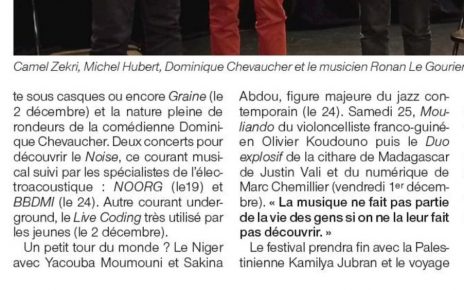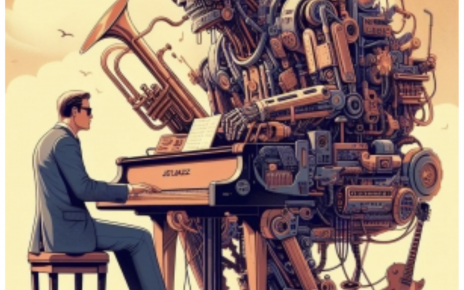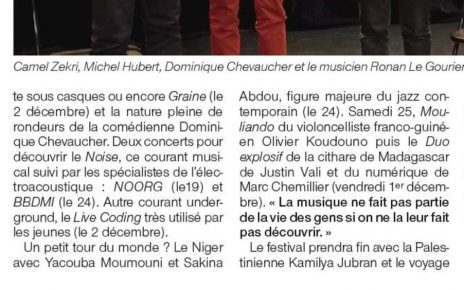Read original article on Forbes website
By Eva Amsen – Contributor – Writing about the overlap of science and art
This article has been updated with a clarification about the REACH project
Musicians have been experimenting with artificial intelligence for a few years now. For example, in 2019, an AI trained on Schubert’s music completed his Unfinished Symphony and last October the Beethoven Orchestra in Bonn performed an AI-generated version of Beethoven’s last symphony.
But what are the limits of AI music? Can an AI really be considered creative? And is it possible for an AI to improvise with musicians live on stage?

To find out, researchers from France, the USA and Japan are collaborating on a study to explore the role of AI in creativity, using a combination of machine learning and social science research. The REACH (Raising Co-creativity in Cyber-Human Musicianship) study is led by Gerard Assayag of IRCAM (France) who recently received funding from the European Research Council for this project.
One part of the study involves teaching AI how to improvise, and find out if it can be used for example in live performance with (human) musicians.
AI isn’t often used in live collaborations. Often, as was the case with the Schubert symphony, a human curator will select the best outputs that the AI created. It’s possible for humans and AI to take the stage together, but it requires a lot of trust in the AI: the musicians need to be confident that what the algorithm creates is something they can work with.
In 2019, rapper Reeps One held a rap battle against an AI called Second Self. He interacted with it as he would with another human rapper, by responding to the AI-generated parts (which were based on his own voice).
Could an AI be part of a jazz performance in a similar way? In a statement to UCSD, researcher Schlomo Dubnov says that such an AI “needs to be able to analyze what’s happening and decide when it’s going to improvise with its human partners and when it’s going to improvise on its own. It needs agency.”
Figuring out how to improvise with an AI is just one part of the project. At the same time, other research teams involved in the study will be looking at how humans and AI interact, and what it means for an AI to be part of a creative collaboration.
With the research only just receiving funding, it may be a few years until we learn more about creativity in AI, but along the way we should start to see musicians experimenting more with AI. It’s a whole new type of experimental music.



